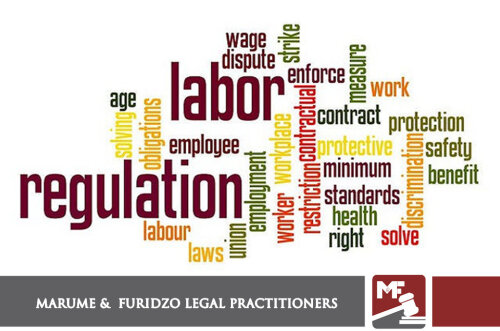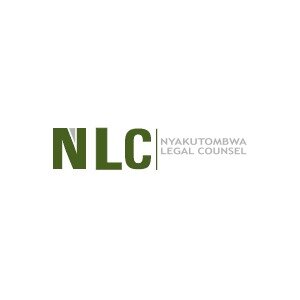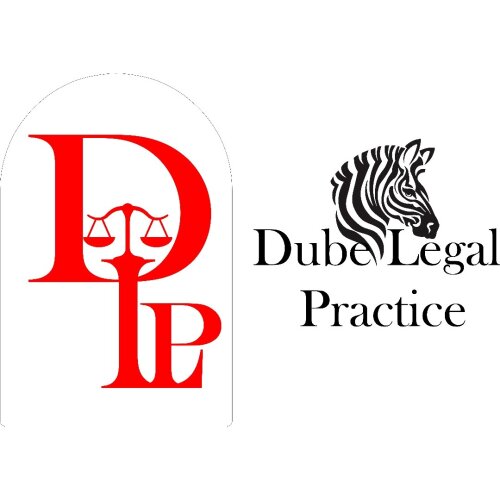Best Housing, Construction & Development Lawyers in Zimbabwe
Share your needs with us, get contacted by law firms.
Free. Takes 2 min.
Free Guide to Hiring a Real Estate Lawyer
Or refine your search by selecting a city:
List of the best lawyers in Zimbabwe
About Housing, Construction & Development Law in Zimbabwe
Housing, Construction & Development laws in Zimbabwe encompass regulations and guidelines that govern the planning, development, and construction of residential and commercial properties. These laws aim to ensure sustainable architecture, promote urban planning and development, uphold safety standards, and protect environmental interests. With the country's drive towards economic growth and infrastructure improvement, these sectors are key areas of focus in aligning national development goals with global standards.
Why You May Need a Lawyer
There are several situations where legal assistance may be necessary when dealing with Housing, Construction & Development in Zimbabwe:
- Property Acquisition: Legal advice is crucial in purchasing or leasing property to ensure legitimate transactions.
- Contract Disputes: Disagreements between contractors, clients, or third parties may require legal intervention for resolution.
- Regulatory Compliance: Navigating building regulations and obtaining necessary permits and certificates can be complex and may necessitate legal guidance.
- Environmental Regulations: Construction projects must comply with environmental laws to avoid penalties or project delays; legal advice can be essential in ensuring adherence.
- Land Use and Zoning Issues: Understanding zoning laws and land use regulations is critical for any development project.
Local Laws Overview
Key local laws relevant to Housing, Construction & Development in Zimbabwe include:
- The Urban Councils Act: Governs the administration and management of urban areas, including building approvals and urban planning.
- The Regional, Town and Country Planning Act: This act facilitates orderly development within regional and urban settings, covering zoning regulations and spatial planning.
- The Environmental Management Act: Ensures that construction and development projects comply with environmental protection requirements.
- Building Regulations: Set safety standards and codes for construction works, ensuring that structures meet design and safety requirements.
- The Deeds Registries Act: Regulates the registration of legal documents related to land ownership and transactions.
Frequently Asked Questions
What is the process of obtaining a building permit in Zimbabwe?
To obtain a building permit, you must submit architectural plans to the local authority for review and approval. This process often involves complying with building and zoning regulations, followed by inspections and possible amendments to the plans.
Can foreign nationals buy property in Zimbabwe?
Yes, but foreign nationals must adhere to specific regulations, including obtaining approvals from relevant governmental bodies. It is advisable to seek legal guidance to navigate these requirements.
What should I do if there is a dispute with my contractor?
First, review the contract to understand the terms and conditions. Often disputes can be settled through mediation, but if not, legal advice or litigation may be necessary.
How can I ensure my project is environmentally compliant?
Conduct an Environmental Impact Assessment (EIA) and obtain the necessary approvals. Professional consultation is recommended to ensure full compliance with the Environmental Management Act.
What is involved in a title deed search?
A title deed search involves verifying the legitimacy of the ownership and any encumbrances on the property. This is essential when acquiring property to ensure clear ownership.
Are there grants for housing development in Zimbabwe?
Yes, the government and international organizations sometimes offer grants and financial assistance for housing development, particularly aimed at affordable housing projects.
What are zoning laws?
Zoning laws are regulations that determine how land within certain areas can be used, whether for residential, commercial, industrial, or agricultural purposes.
What penalties exist for non-compliance with building regulations?
Penalties can include fines, legal action, or even the demolition of non-compliant structures. It’s crucial to adhere to all building regulations throughout the construction process.
Who is responsible for public infrastructure in developing areas?
Local authorities are generally responsible for public infrastructure, but developers may be required to provide or contribute to infrastructure as part of development agreements.
Is it possible to change the zoning of a property?
Yes, but this requires a formal application to the local authority, and the decision will depend on various factors including local plans, policies, and public interest considerations.
Additional Resources
Below are recommended resources and organizations for additional guidance:
- Ministry of Local Government, Public Works and National Housing: Offers support and regulations related to housing and urban development.
- Environmental Management Agency: Provides guidance on environmental compliance for development projects.
- Local Urban and Rural Councils: They provide specific information on zoning and local building regulations and permits.
- The Zimbabwe Institute of Regional and Urban Planners: Offers insights into best practices and guidelines for urban planning and development.
Next Steps
If you need legal assistance in Housing, Construction & Development, consider the following steps:
- Consult with a lawyer who specializes in property and construction law to discuss your specific needs.
- Gather all relevant documentation and information related to your situation before your consultation.
- Reach out to appropriate local authorities for preliminary guidance on your particular case or situation.
- Utilize governmental and non-governmental resources to ensure comprehensive understanding and compliance.
Finding the right legal advice can help ensure that your interests are protected and that your housing, construction, and development projects proceed smoothly and legally in Zimbabwe.
Lawzana helps you find the best lawyers and law firms in Zimbabwe through a curated and pre-screened list of qualified legal professionals. Our platform offers rankings and detailed profiles of attorneys and law firms, allowing you to compare based on practice areas, including Housing, Construction & Development, experience, and client feedback.
Each profile includes a description of the firm's areas of practice, client reviews, team members and partners, year of establishment, spoken languages, office locations, contact information, social media presence, and any published articles or resources. Most firms on our platform speak English and are experienced in both local and international legal matters.
Get a quote from top-rated law firms in Zimbabwe — quickly, securely, and without unnecessary hassle.
Disclaimer:
The information provided on this page is for general informational purposes only and does not constitute legal advice. While we strive to ensure the accuracy and relevance of the content, legal information may change over time, and interpretations of the law can vary. You should always consult with a qualified legal professional for advice specific to your situation.
We disclaim all liability for actions taken or not taken based on the content of this page. If you believe any information is incorrect or outdated, please contact us, and we will review and update it where appropriate.
Browse housing, construction & development law firms by city in Zimbabwe
Refine your search by selecting a city.

















